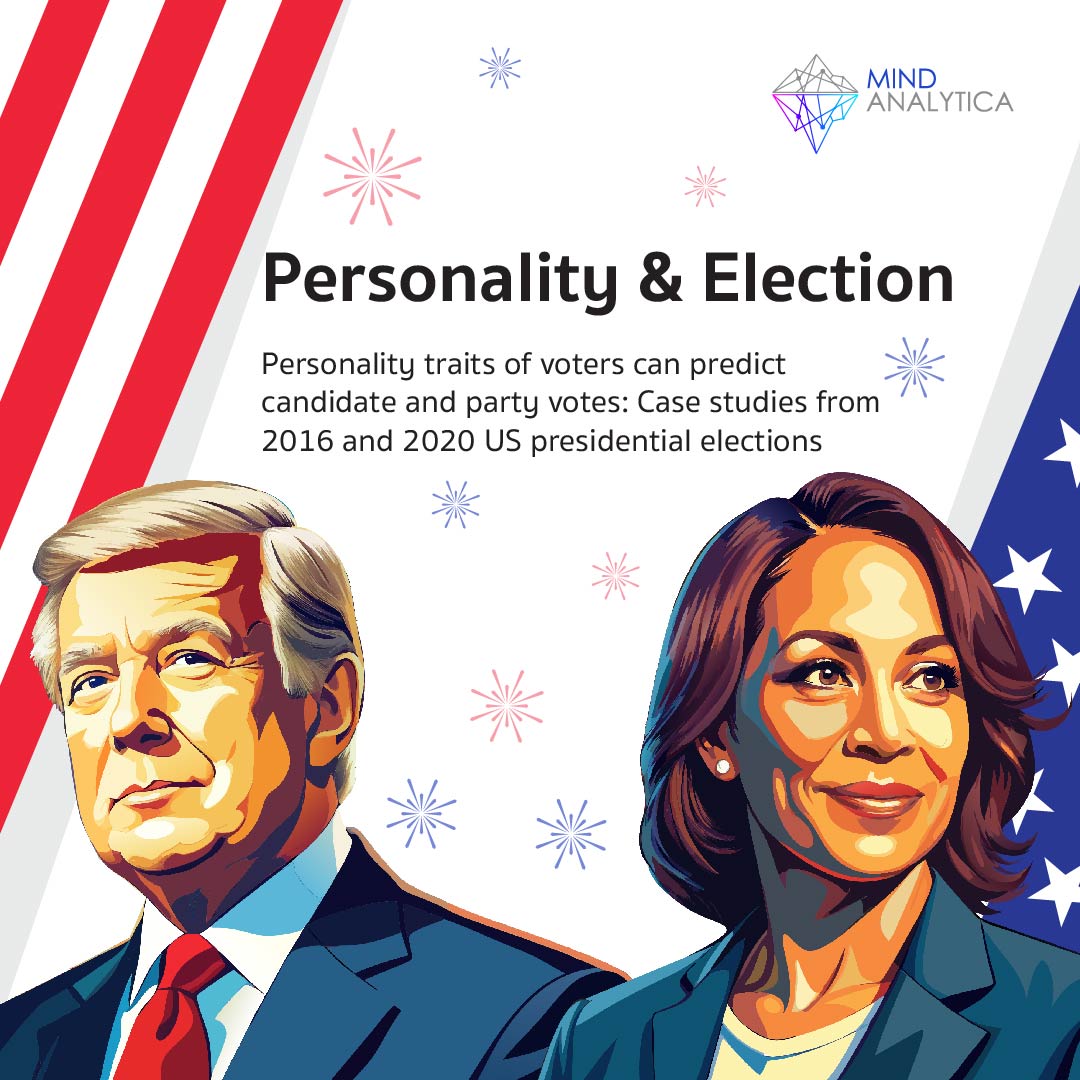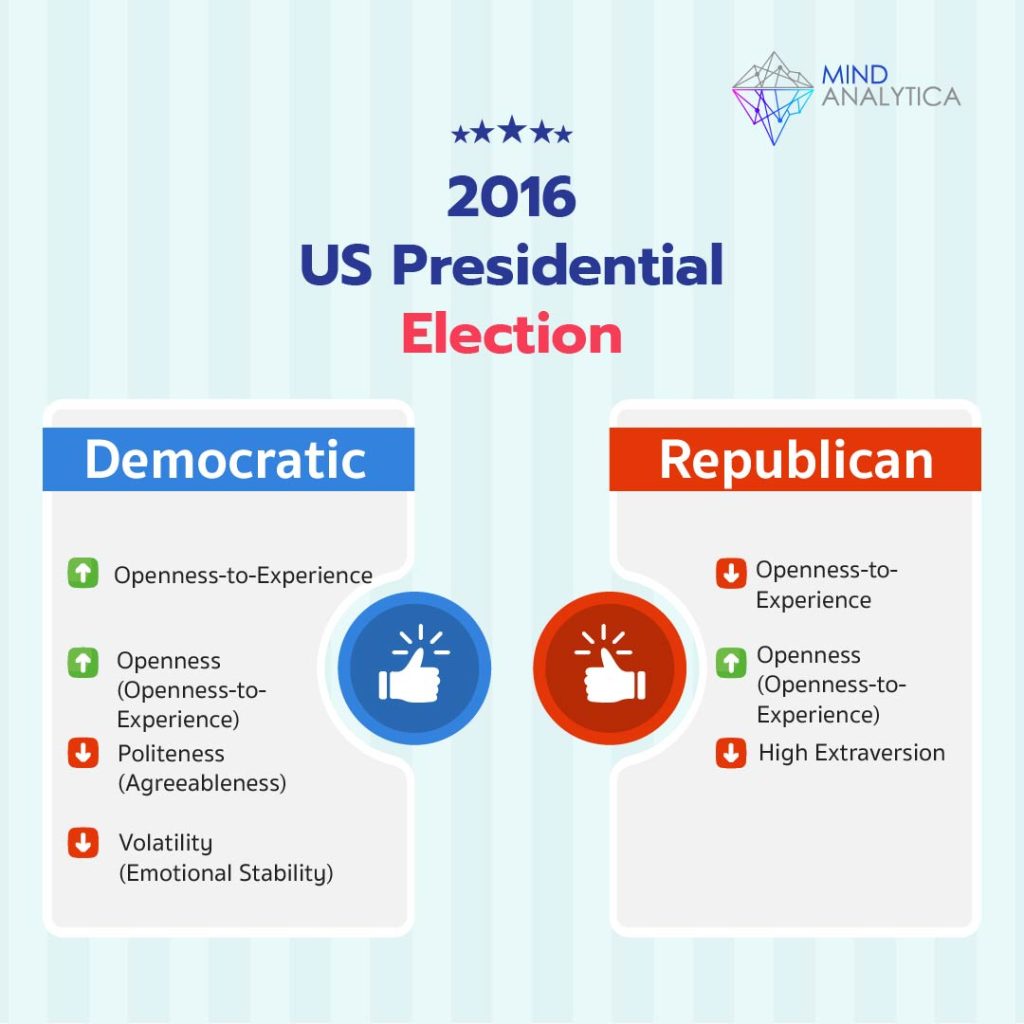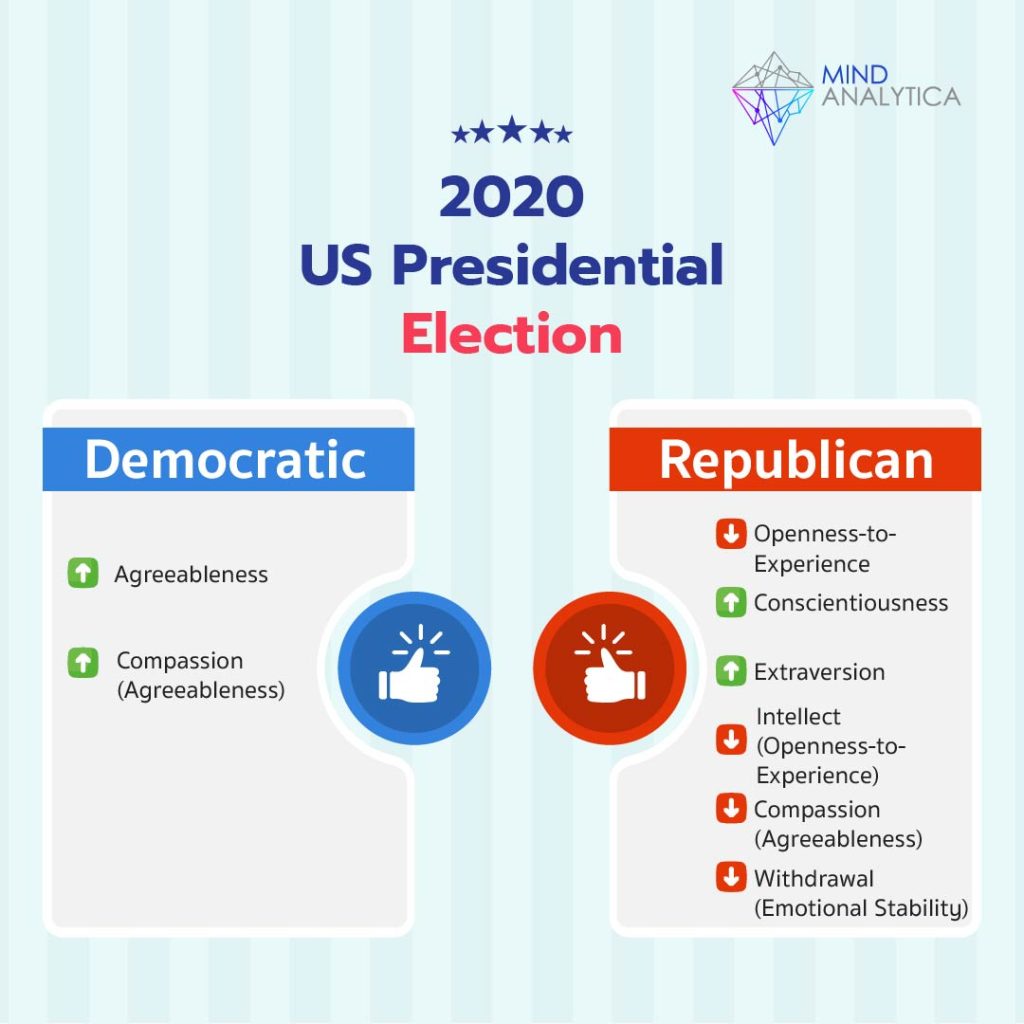Personality & Election
4 พฤศจิกายน 2567 - เวลาอ่าน 3 นาที
Personality traits of voters can predict candidate and party votes: Case studies from 2016 and 2020 US presidential elections
On November 5, 2024, the United States will hold its presidential election, with Kamala Harris of the Democratic Party, currently the Vice President in Joe Biden's administration, facing off against Donald Trump of the Republican Party, a former president. This election has sparked numerous stories, from an assassination attempt on Trump to Joe Biden withdrawing from the race, along with unconventional campaign tactics such as Trump working at a McDonald’s and negative accusations directed at both candidates.
In political science and psychology, voter behavior has been studied, showing that in past elections, Black, Latino, and Asian voters tended to favor Democrats. According to 2020 exit polls, 87% of Black, 65% of Latino, and 61% of Asian voters supported Joe Biden, while 58% of White voters leaned toward Donald Trump. Young voters also tend to favor Democrats, with 66% of those aged 18-24 and 64% of those aged 25-29 choosing Biden, whereas 62% of voters aged 65 and older supported Trump.
These demographic trends may reflect differing values between Democratic and Republican supporters. Those who prefer Harris often value individual diversity, equality, and environmental concerns, while Trump supporters typically emphasize nationalism, business freedom, and immigration restrictions. These values also correlate with distinct personality traits between supporters of Harris and Trump.
Xiaowen Xu from the College of William & Mary and Jason E. Plaks from the University of Toronto conducted studies in 2023 examining which Big Five personality traits influenced support for U.S. presidential candidates during the presidential election 2016 and 2020. Their surveys included 854 and 403 participants, respectively.

In 2016, Democratic candidates included Bernie Sanders and Hillary Clinton, while the Republican candidate was Donald Trump. Democratic voters tended to be open to new experiences and less focused on politeness or outwardly expressing negative emotions. Sanders supporters were often young, open-minded, less conscientious, compassionate, disinterested in hard work, and tended to keep negative emotions private. Clinton supporters were educated women, though without notable personality patterns. Republican supporters generally displayed low openness and high extraversion, with Trump supporters being older, less educated men with low openness, lower agreeableness, and high conscientiousness. They valued order, hard work, and were less empathetic.

In the 2020 election, Democratic candidate Joe Biden and Republican incumbent Donald Trump competed. Biden’s supporters were compassionate, with a tendency toward kindness and withholding negative emotions. These voters were often educated women, open to new experiences and empathy. Republican supporters, however, were less open but conscientious, showing little interest in learning, limited empathy, and low inhibition of negative emotions. Trump’s supporters were older, less educated men who were low in openness and agreeableness, yet conscientious and emotionally stable, valuing hard work but low empathy.
These studies highlight how voters’ personality differences shape the ideological foundation behind political party policies, influencing campaign approaches and voter decision-making. Understanding voter personality profiles can assist parties in tailoring policies to meet their base’s needs and lifestyle, while also offering voters insight into party alignment, potentially affirming their electoral choices in the future.
Reference
Xu, X., & Plaks, J. E. (2023). Aspect-level personality characteristics of US presidential candidate supporters in the 2016 and 2020 elections. Social Psychological and Personality Science, 14(5), 588-598.



